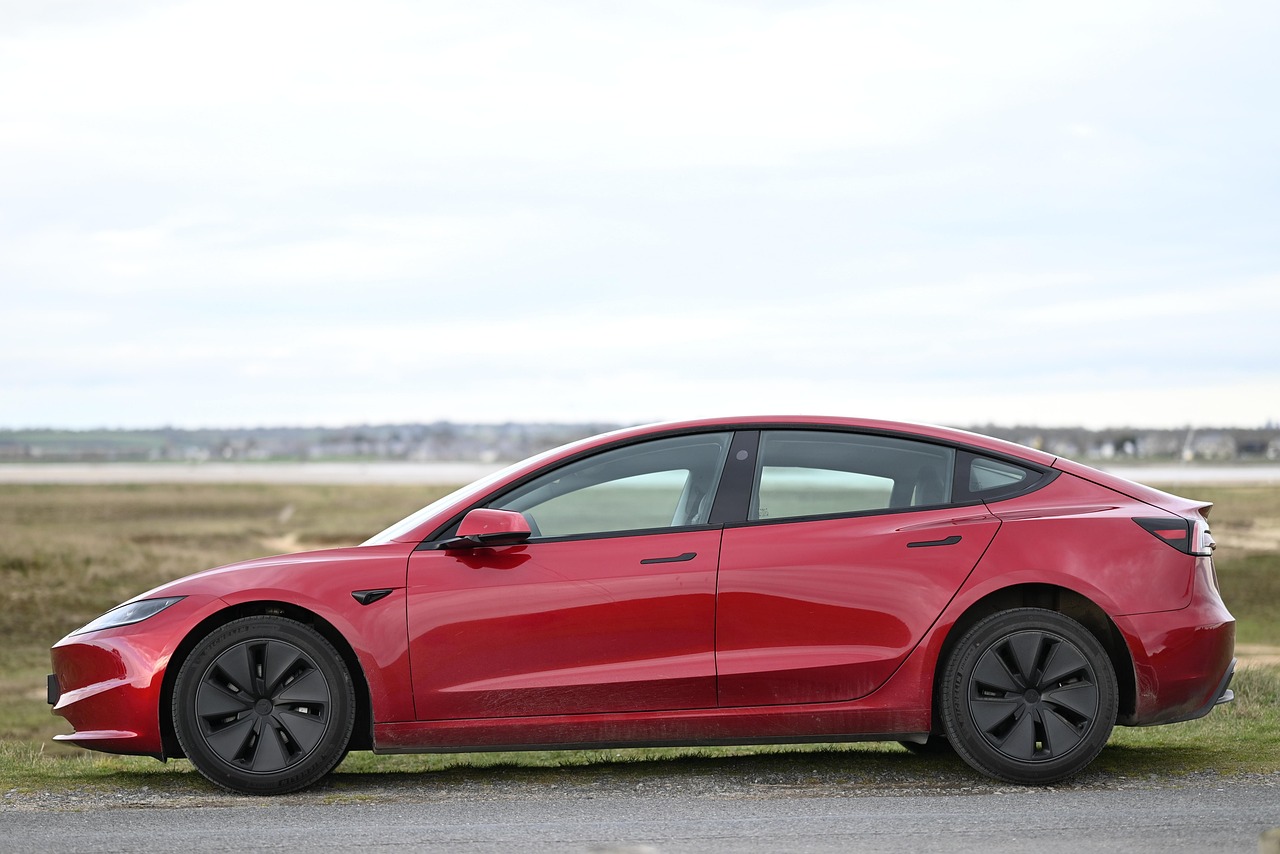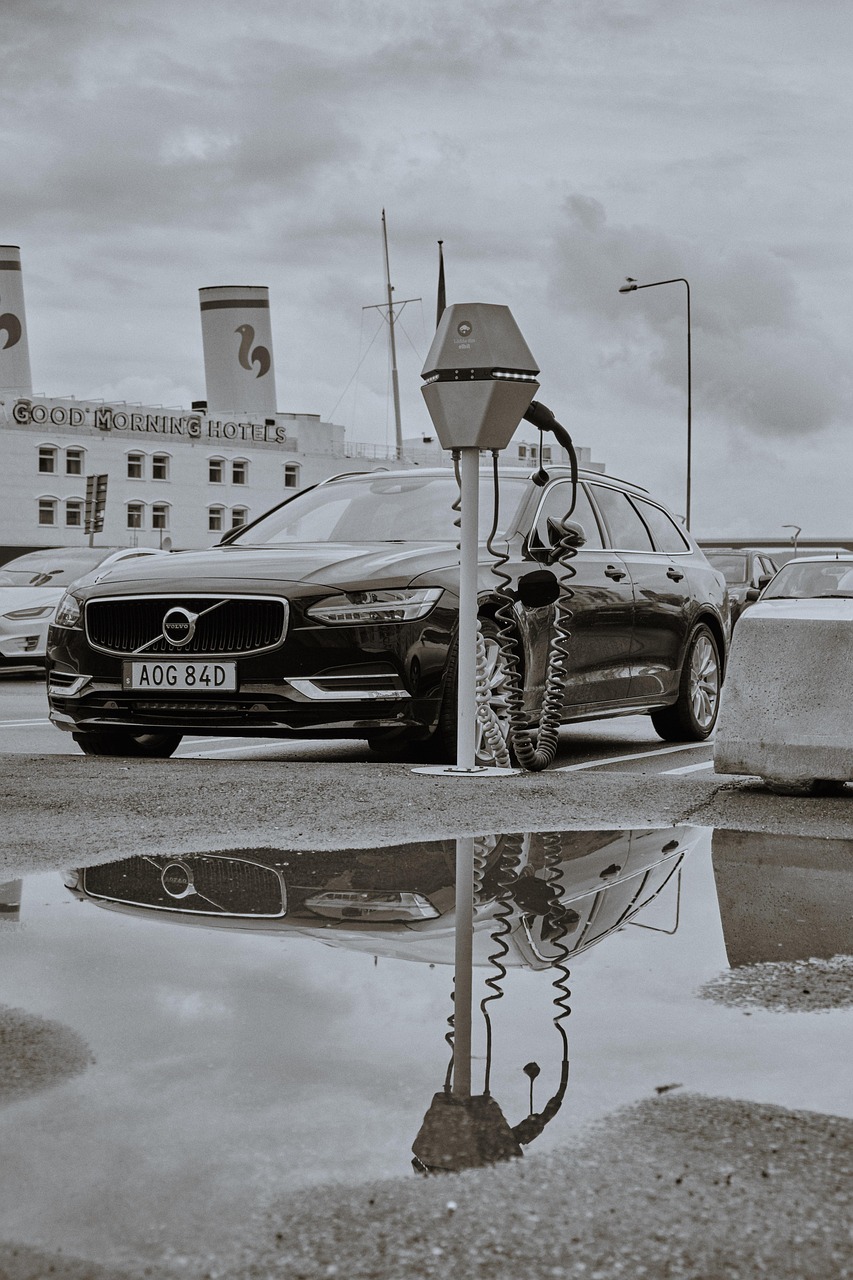Electric Vehicles for Sustainable Travel: The Future of Green Transportation
Sustainable travel insights and guidance
📅 March 15, 2024
⏱️ 8 min read
🏷️ Travel Tips
Electric vehicles are transforming the way we travel, offering a clean, efficient, and sustainable alternative to traditional gasoline-powered cars. From road trips to daily commuting, EVs are making sustainable travel more accessible and enjoyable than ever before.
🌍 The EV Revolution in Travel
Electric vehicles represent a fundamental shift toward sustainable transportation, offering zero-emission travel while providing the freedom and flexibility that travelers love. As charging infrastructure expands and battery technology improves, EVs are becoming the preferred choice for eco-conscious travelers.
 Electric Vehicle
Electric Vehicle
🌿 Environmental Benefits of EV Travel
Electric vehicles offer significant environmental advantages over traditional gasoline-powered cars, making them an ideal choice for sustainable travel.
Zero Direct Emissions: EVs produce no tailpipe emissions, eliminating air pollution during travel and reducing your carbon footprint.
Renewable Energy Integration: EVs can be charged using renewable energy sources like solar and wind power, making travel truly sustainable.
Reduced Noise Pollution: Electric vehicles operate quietly, reducing noise pollution in natural areas and urban environments.
Energy Efficiency: EVs are significantly more energy-efficient than gasoline cars, converting more energy into motion.
🔋 Planning EV Road Trips
Planning an electric vehicle road trip requires some additional considerations, but modern EVs and charging infrastructure make it easier than ever.
Route Planning: Use EV-specific route planning apps to find charging stations along your route and plan stops accordingly.
Charging Strategy: Plan charging stops around meals, sightseeing, or overnight stays to make the most of your time.
Range Management: Understand your vehicle's range and plan accordingly, especially in remote areas with limited charging infrastructure.
Backup Plans: Always have backup charging options and alternative routes in case of unexpected delays or charging station issues.
⚡ Charging Infrastructure and Options
The EV charging infrastructure is rapidly expanding, offering various charging options to meet different travel needs.
Public Charging Networks: Major charging networks like Tesla Superchargers, Electrify America, and ChargePoint offer extensive coverage across many regions.
Destination Charging: Many hotels, restaurants, and attractions now offer EV charging for guests and visitors.
Home Charging: Installing a home charging station provides convenient overnight charging for daily use and trip preparation.
Portable Charging: Portable chargers and adapters can provide emergency charging options in remote locations.
🚗 Best EVs for Travel
Choosing the right electric vehicle for travel depends on your specific needs, budget, and travel style.
Long-Range EVs: Vehicles with 300+ miles of range are ideal for long-distance travel and reduce charging stops.
Fast Charging Capability: Look for vehicles that support fast charging to minimize charging time during trips.
Spacious Interiors: Consider cargo space and passenger comfort for extended travel and gear storage.
Reliability and Support: Choose vehicles from manufacturers with strong charging networks and customer support.
🌍 EV Travel Destinations
Some destinations are particularly well-suited for electric vehicle travel, offering excellent charging infrastructure and scenic routes.
California: California leads the US in EV adoption and charging infrastructure, making it ideal for EV road trips.
Norway: Norway has the highest EV adoption rate globally and excellent charging infrastructure throughout the country.
Netherlands: The Netherlands offers extensive charging networks and EV-friendly policies for travelers.
Scenic Routes: Many scenic routes now have charging infrastructure, making EV travel possible in beautiful natural areas.
💰 Cost Benefits of EV Travel
Electric vehicles offer significant cost benefits over traditional gasoline cars, making sustainable travel more affordable.
Lower Operating Costs: Electricity is generally cheaper than gasoline, resulting in lower fuel costs per mile.
Reduced Maintenance: EVs have fewer moving parts and require less maintenance than gasoline cars.
Incentives and Rebates: Many governments offer incentives, rebates, and tax credits for EV purchases and charging infrastructure.
Resale Value: EVs often maintain good resale value due to their durability and growing demand.
🔧 EV Travel Tips and Best Practices
Maximize your EV travel experience with these practical tips and best practices.
Pre-Trip Planning: Plan your route, charging stops, and accommodations in advance to ensure a smooth journey.
Weather Considerations: Cold weather can reduce EV range, so plan accordingly and consider climate control usage.
Efficient Driving: Use regenerative braking, maintain steady speeds, and avoid aggressive acceleration to maximize range.
Charging Etiquette: Be considerate of other EV drivers by moving your vehicle promptly after charging is complete.
 Electric Vehicle
Electric Vehicle
🌍 The Future of EV Travel
Electric vehicles are revolutionizing sustainable travel, offering a clean, efficient, and enjoyable way to explore the world. As technology continues to improve and charging infrastructure expands, EV travel will become even more accessible and convenient.
Key Benefits:
- Environmental Impact: Zero direct emissions and potential for renewable energy charging
- Cost Savings: Lower operating costs and reduced maintenance requirements
- Performance: Instant torque and smooth, quiet operation
- Convenience: Home charging and expanding public infrastructure
- Future-Proof: Aligned with global trends toward sustainable transportation
Remember: EV travel is about more than just transportation—it's about making a conscious choice to reduce your environmental impact while enjoying the freedom and flexibility of travel. Every mile driven in an electric vehicle is a step toward a more sustainable future.
 Electric Vehicle
Electric Vehicle Electric Vehicle
Electric Vehicle